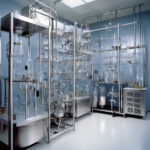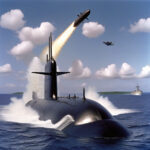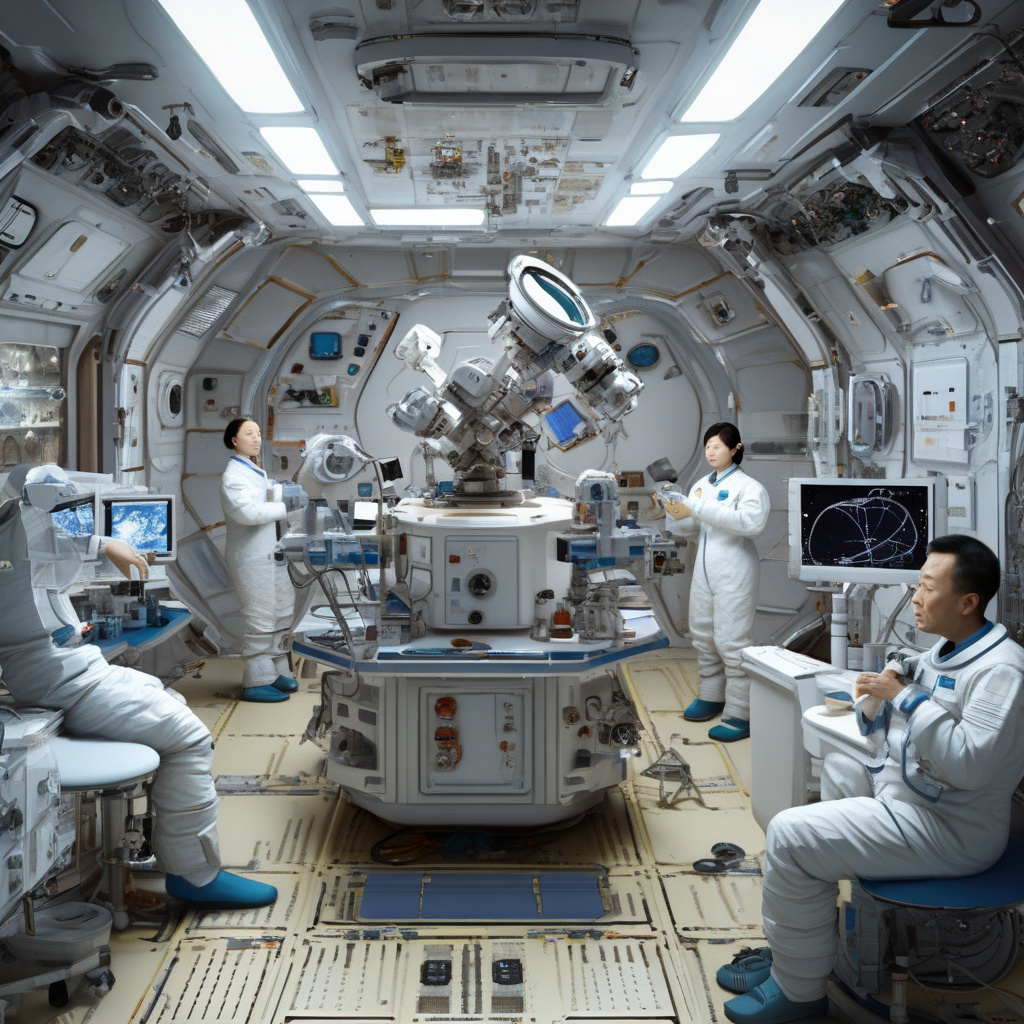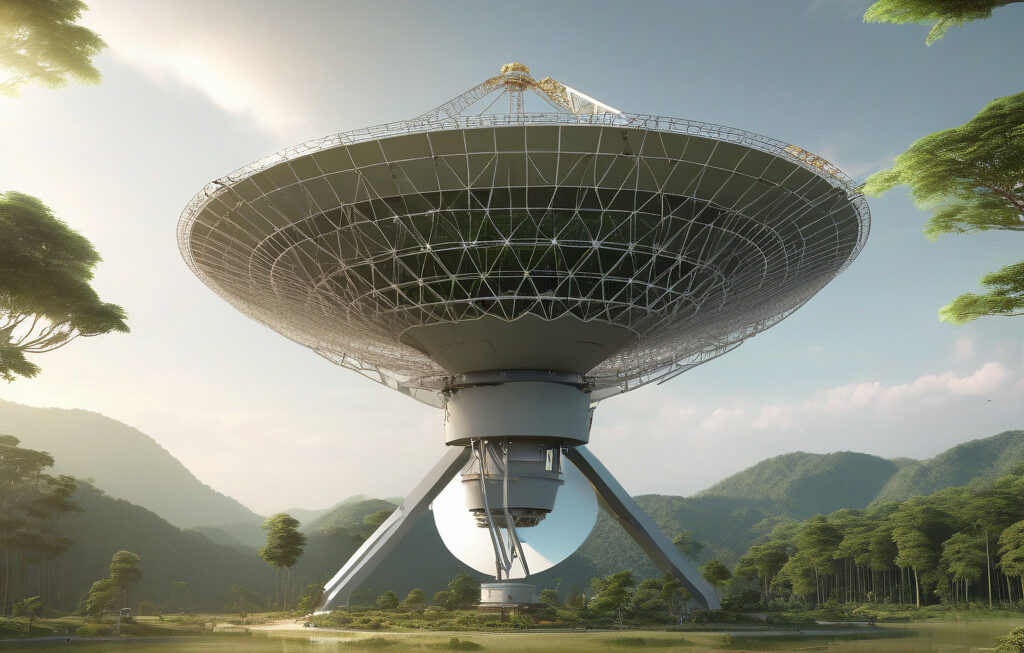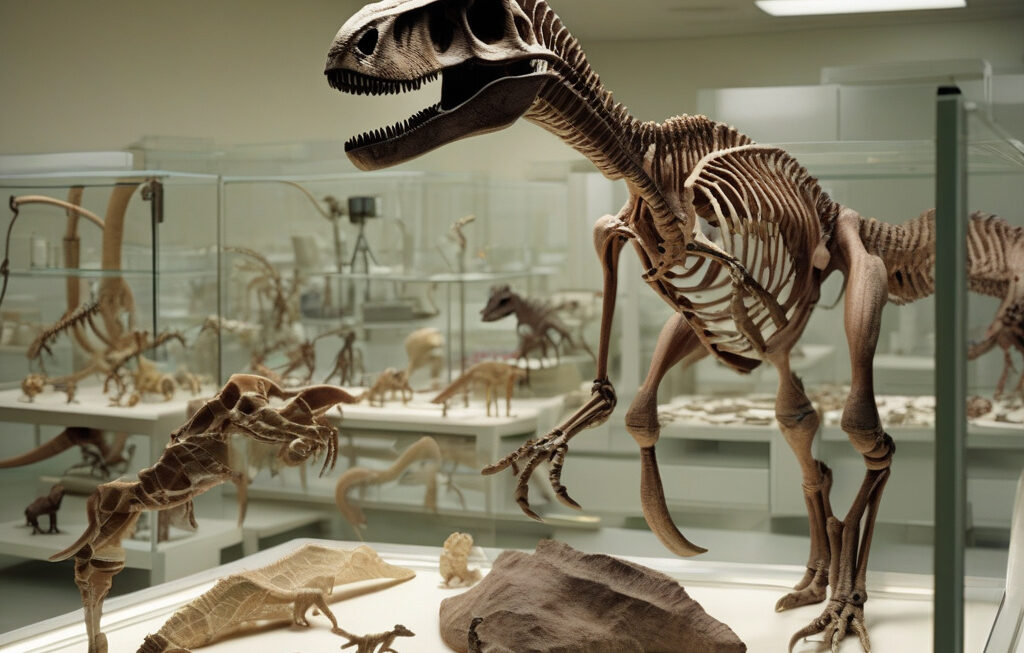Chinese Scientists Uncover New Bacterial Strain Aboard Tiangong Space Station
Chinese scientists have discovered a new bacterial strain aboard the Tiangong space station, the first of its kind to be found in such an environment. This groundbreaking discovery sheds light on the resilience and adaptability of microbial life in space, opening up a new realm of possibilities for future space exploration and colonization.
The new microbe, named Tytania, was found in a remote area of the space station during a routine sampling mission. Scientists were astonished to find a thriving colony of this previously unknown bacterium, which displayed unique characteristics not found in any known terrestrial microbes. Initial analysis suggests that Tytania is capable of surviving in extreme conditions, such as high levels of radiation and low oxygen levels, making it a fascinating subject for further study.
This discovery has significant implications for our understanding of the potential for life beyond Earth. The fact that a new microbe could flourish in the harsh environment of space raises questions about the origins of life and the possibility of extraterrestrial life forms. Tytania’s discovery challenges the conventional wisdom that life can only exist under specific conditions, highlighting the remarkable adaptability of microbial organisms.
Moreover, the presence of Tytania on the Tiangong space station has important practical applications for future space missions. Understanding how this microbe functions and thrives in space could lead to the development of new technologies and materials that are better suited for long-duration space travel. For example, scientists could harness Tytania’s unique properties to create advanced life support systems or bioengineered materials for spacecraft.
In addition to its scientific significance, the discovery of Tytania also underscores the importance of international cooperation in space exploration. The Tiangong space station, a joint project between China, Russia, and the European Space Agency, serves as a symbol of collaboration and unity in the quest for knowledge. By working together, scientists from different countries can pool their resources and expertise to make groundbreaking discoveries that benefit all of humanity.
As researchers continue to study Tytania and its implications, the possibilities for future scientific breakthroughs are endless. From uncovering the origins of life to developing innovative technologies for space exploration, this discovery marks a new chapter in humanity’s quest to understand the cosmos. The resilience and adaptability of Tytania serve as a testament to the power of life to thrive in even the most inhospitable environments, inspiring us to push the boundaries of what is possible.
In conclusion, the discovery of the new bacterial strain Tytania aboard the Tiangong space station represents a major milestone in our exploration of space. This finding not only expands our knowledge of microbial life beyond Earth but also holds promise for the development of new technologies and materials for future space missions. As we continue to unravel the mysteries of the universe, one thing is certain: the resilience of life knows no bounds.
space exploration, microbial life, scientific discovery, international cooperation, future technology





